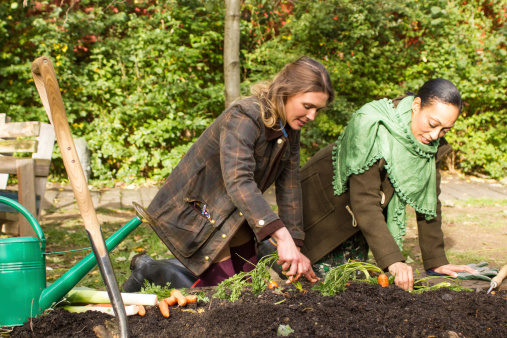Leicester, England—Soil in urban farming allotments is healthier, and therefore better for farming, than more intensively farmed soils, according to recent research. The study, conducted in the United Kingdom and published in the Journal of Applied Ecology, shows the benefits of local, small-scale farming.
Typical industrial farming practices place stress on soil, reducing organic carbon stock and harming the ability of soils to store water and nutrients. Damages to soil structure can lead to erosion, as well. Ecologist Jill Edmondson from the University of Sheffield took soil samples from 27 plots in 15 allotments throughout Leicester. Soil from local parks, gardens and agricultural land were also tested.
When measuring a number of soil properties, such as organic carbon levels, total nitrogen, the ratio between carbon and nitrogen and soil bulk density (an indicator of soil compaction), small-scale allotments came out ahead. Compared with local arable fields, allotment soil had 32% more organic carbon, 25% higher nitrogen, 36% higher carbon to nitrogen ratios and was far less compacted. Said Edmondson in a statement, “As well as improving food security, studies show that own-growing has direct physical and mental health benefits, and can provide access to sustainably produced fruit and vegetable crops without the associated food miles.”
Published in WholeFoods Magazine, June 2014 (online 5/2/14)










